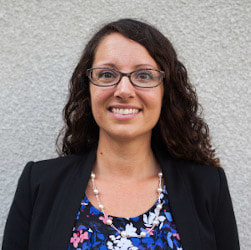"The Power of Context: Exploring Teachers’ Formative Assessment for Online Collaborative Writing"5/27/2020
Alumna Jenell Krishnan (left, Ph.D. '19), Professor Rebecca Black (center, UCI Informatics), and Professor Emerita Carol Booth Olson (right) have published in Reading and Writing Quarterly. The title of their article is "The Power of Context: Exploring Teachers’ Formative Assessment for Online Collaborative Writing." Krishnan specialized in Human Development in Context (HDiC) for her doctoral work. Currently, she is a project scientist with the National Write Center.
Black studies IT-based, research-driven interventions that can be leveraged to support children who are struggling academically, personally and socially. Together with Department of Informatics colleagues and collaborators in the Schools of Education and Humanities, Black is spearheading a project that uses IT to help students who have difficulty with reading and writing to develop their academic literacy skills. Olson co-founded the UCI Writing Project in 1978 and served as director until 2019. Currently a professor emerita, Olson directs both the WRITE Center and the UCI/National Writing Project. Olson has authored several books, including The Reading/Writing Connection, and published over thirty journal articles on interactive strategies for teaching writing, fostering critical thinking through writing, applying multiple intelligences theory to language arts instruction, using multicultural literature with students of culturally diverse backgrounds. Abstract Research suggests that teachers' and students' engagement in formative assessment contributes to students’ writing development by influencing both what and how students learn. However, while research exists on how teachers and students engage in formative assessment in traditional classroom settings, little work has examined the nature of formative assessment when students write together online. In this multiple-case study that took place in two states, we investigate (1) the common and unique contextual factors that shape ELA teachers’ formative assessment beliefs and practice, and (2) the challenges they face when engaging in ongoing assessment while students write together online in their classrooms. Data include pre- and post-study semi-structured teacher interviews and post-instruction debriefs, and field notes from 100 hours of classroom observations. Findings suggest that district-level and classroom-level factors shape teachers’ perceptions of formative assessment and how they adjust their approach to writing instruction over time. This work illustrates the unique contextual factors that shape teachers’ beliefs about and engagement with formative assessment, specifically for online collaborative writing. Comments are closed.
|
Resources for:
|
|




